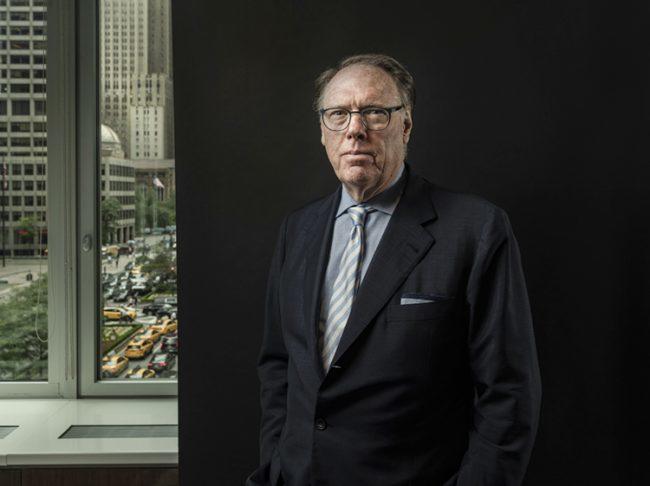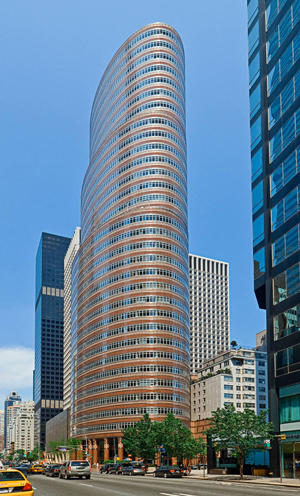Not long after developer Lou Ceruzzi suddenly died in August 2017, his longtime deputy and designated successor, Arthur Hooper, started getting calls from banks.
“Every lender called up and said, well, are you okay? Are you still in business? We have a guarantee here, are the assets still in place?” he said.
Ceruzzi’s unexpected death, caused by an aortic aneurysm at age 64, shook the company to the core. It left Hooper and a small group of executives with no CEO; three risky, expensive and unfinished luxury condo developments in Manhattan; and a nervous group of investors that had backed these projects with hundreds of millions of dollars.
During the months immediately following, Hooper’s job was to convince Ceruzzi Properties’ partners — and any lenders it had “key man” provisions with — that the company wasn’t going to “crawl into a shell and get into a fetal position.”
Now, more than a year and plenty of reassuring phone calls later, the company has somewhat recovered from the shock and is starting to work on a strategy for Ceruzzi Properties, post-Ceruzzi.
At the company’s Midtown office, there are some things that haven’t changed. For instance, the New York Times still comes each day, addressed to Lou. But slowly, Hooper and the other executives including CFO Travis Farina are starting to leave their own mark on the company. They envision a shift away from risky high-rise development, back to the Ceruzzi Properties’ suburban roots. It also includes parting with one of Lou’s go-to deal finders in Manhattan, Robert Skolnick — a move that ultimately resulted in Ceruzzi executives severing his remaining ties with the company.

147 151 East 86th Street
“Lou was really a risk-taker,” said Ken Cartelli, the company’s head of construction and development, “and I think we’re more conservative and more cautious about the investments that we’re considering.”
Skyscrapers reconsidered
The first indication of Ceruzzi Properties’ new strategy came over the summer, when word spread that the company was searching for a development partner to take control of the $500 million mixed-use project 520 Fifth Avenue.
Ceruzzi and its partner Shanghai Municipal Investment had bought the Midtown site for $275 million in 2015, with plans to build a 71-story hotel and condo tower. SMI owned 94 percent of the site, according to sources. Ceruzzi owned the rest and was set to take charge of development.
But following Lou’s death, the company decided it couldn’t handle the development by itself in addition to its two other projects, 138 East 50th Street and 147-151 East 86th Street, also known as 1289 Lexington. Over the summer, it held talks with Zeckendorf Development and Gary Barnett’s Extell Development, among others, but had yet to pick a development partner at the time of publication.
At Ceruzzi, no one denies that 520 Fifth was Lou’s project, and that the other executives might have never pursued it without him.
“It was his company, it was his money,” Hooper said. “So if he wanted to take a risk, he didn’t have to come and ask anybody’s permission to do it. As president, I feel the weight constantly that it’s not my money.”
In the transition, the company has left more than Lou’s taste for risk behind. Skolnick, a partner of Lou’s who helped lock down sites for the company’s Manhattan developments, was not a part of the remaining executives’ new vision. A dispute between Hooper and Skolnick led to the latter hiring attorney Stephen Meister and the parties eventually reaching a settlement for Skolnick’s release from the company’s operation, sources familiar with the agreement told The Real Deal.
Skolnick, who went by the title of “director of acquisitions” on his LinkedIn page, was instrumental in seeking out Ceruzzi’s Manhattan development sites, including 520 Fifth. But Ceruzzi still has an internal acquisitions and development executive: Bryan Cappelli, who has been with the company for five years.
That said, Skolnick retains an interest in Ceruzzi’s ongoing Manhattan developments, but the exact arrangement has been contested by both parties.
Initially, Hooper said Skolnick was paid out. “He’s totally independent from us now. There’s no arrangement,” Hooper said.

Arthur Hooper (Photo by Sasha Maslov)
But in an interview

, Skolnick maintained the opposite was true. “The bottom line is that I absolutely have an economic interest in the projects,” he said, though he declined to describe the financial arrangement in further detail, citing nondisclosure agreements.
A company spokesperson later said that Skolnick did have an ongoing “interest” in the success of the developments but stressed that he had no equity or ownership stakes.
The risk-taker
Lou’s risk-taking was a relatively recent phenomenon. He had founded his development company in New Haven, Connecticut, in the late 1980s and spent decades making a name and a fortune building suburban retail properties. Then, in middle age, he reinvented himself. He partnered on restaurants with celebrity chef Geoffrey Zakarian, shaved his head, made an appearance on reality TV with a girlfriend half his age and started building skyscrapers in Manhattan.
In 2013, Ceruzzi and SMI bought a development site at 138 East 50th Street, where the partners are developing a 72-story condo tower. A year later, Ceruzzi partnered with Stillman Development and Kuafu Properties to buy a site at 147-151 East 86th Street, where an 18-story, 61-unit condo is in the works. In 2015, Ceruzzi and SMI bought 520 Fifth, and a year later they bought the land under the Lipstick Building for $453 million.
Even if it passes off 520 Fifth, Ceruzzi Properties, which has fewer than 40 employees, will have its hands full with the other two projects.
At 138 East 50th Street, Ceruzzi and SMI borrowed $300 million from Madison Realty Capital last year. Like some other developers, Ceruzzi decided to be patient. The Pelli Clarke Pelli-designed building topped out in 2017 and, amid a tepid sales market, won approval from the state attorney general’s office this May for a $535.7 million condo offering plan. But Ceruzzi doesn’t plan to launch sales at the 124-unit high-rise until early 2019.

The Lipstick Building
Last month, Ceruzzi brought on former Extell Development exec Anna Zarro as executive in residence and head of sales to oversee marketing at 50th Street, where condos are asking an average price of $4.3 million, and to launch sales at 86th Street.
“Obviously you’d like the market to be stronger,” said Hooper. At 86th Street, which topped out this summer, the company hopes for stronger demand in part because of weaker competition. “The Upper East Side is not overbuilt at this time, so we’re hopeful about that project,” he said.
For its next deals, Ceruzzi is looking beyond New York. The company recently bought a 25,000-square-foot medical office building in Connecticut, and Cartelli said it would like to do “three or four” similar deals.
“Candidly, I’m not sure Lou would have paid all that much attention to it, but it’s something that’s very attractive to us,” said company COO Matt Healey. Healey added that the company hopes to find a “much healthier balance” by pairing its investments in New York with suburban medical offices, retail and student housing.
Those who have worked with the company say Hooper, Cartelli and the other executives managed to take over from the late CEO more or less seamlessly.
“Other than the fact that instead of calling Lou I call Art, I haven’t seen much of a change,” said developer Ed Blumenfeld, who has previously partnered with the company.
But as Ceruzzi Properties seeks its new balance, it may end up missing its late founder’s knack for building relationships with lenders, partners and tenants.
“He had an irreplaceable personality, and I would put his ability to deal make and to connect with someone on an interpersonal level up with anyone in the business,” said Christopher Peck, a capital markets broker at HFF who arranged funding for several of Ceruzzi’s New York projects.
Hooper and the other executives are a “solid team,” he added. “They’re not Lou, but no one is.”
